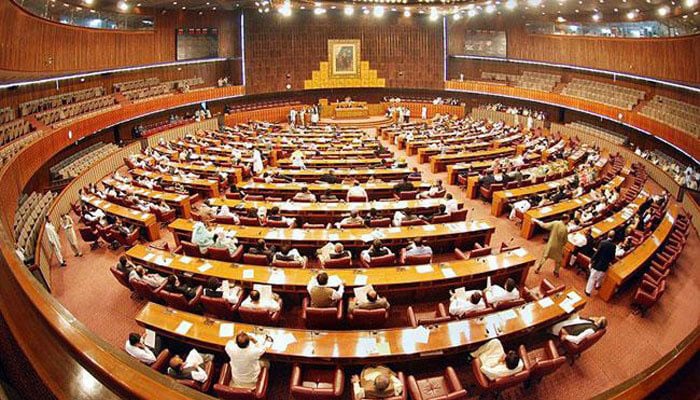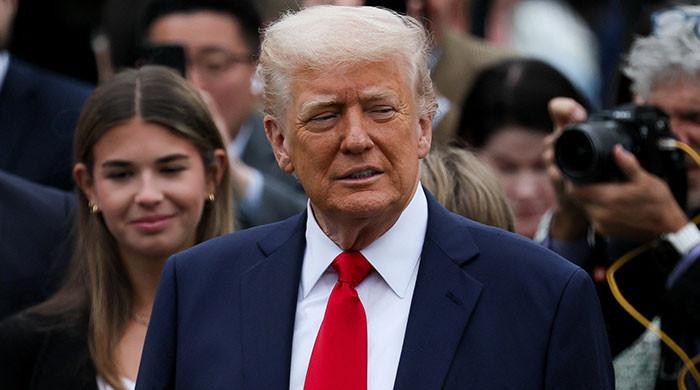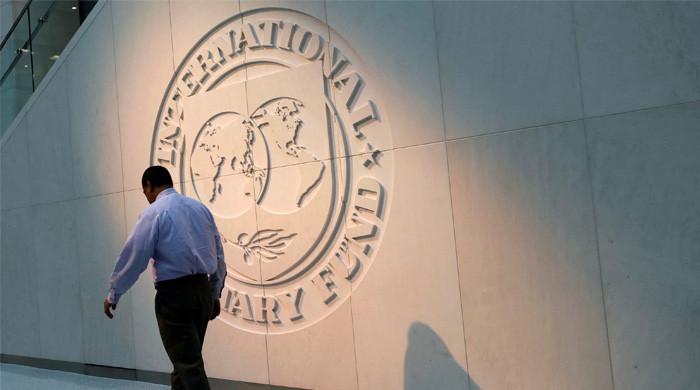The dominator state
The Pakistani state follows a model of governance that pits it against the citizenry, rather than in subservience to it
August 20, 2020

The term “Dominator Culture” was first coined by author Riane Eisler in her book The Chalice and the Blade, in which she identified a model of society where fear and force are used to maintain specific hierarchical structures in family, tribe and state.
Regardless of location, time period, religious beliefs or advancements in technology, a society may follow the dominator culture model characterised by an authoritarian social and family structure, rigid male dominance and a system that normalises this.
A dominator model is in contrast to a ‘partnership model’, which is dependent on mutual cooperation and respect, embodied in a belief system that values empathy and partnership.
The idea of dominator culture has been expanded further by counter-culture/psychedelic commentators such as Terence McKenna, who wrote that the state co-opted this concept and presented it as the natural order of things. Intellectual and ideological capture by the state, exercised through legislation, executive decision making and policy, thereafter added sophisticated layers to the dominator model.
The dominator model is most prevalent in authoritarian states, in which state apparatus such as the police, armed forces and civil services are utilized as instruments of oppression in a targeted way. It can also form the fabric of developed, progressive countries such as the United States — where its long-running War on Drugs has been described by experts to be a complete failure, but which has endured with no signs of abating.
The state as dominator of ideology
It is the state as the ideological dominator that does the most harm when it seeks to repress speech, free exchange of ideas and tolerates no other narrative other than its own.
The Pakistani state in its various manifestations has long embraced and nurtured the dominator model. Just going by the news last month, an overzealous official of the Punjab Curriculum and Textbook Board (PCTB) banned one hundred books taught in private schools on the premise that they were ‘anti-national’ and ‘blasphemous’. Some books were banned because they had a picture of a pig in them. Another one had an allegedly incorrect depiction of the Pakistani map.
Earlier, the Punjab Assembly had passed the Tahaffuz-e-Bunyad Islam Act (since put on ice because of the backlash that it generated), which sought to give bureaucrats unbridled powers to ban the import, printing or publishing of any book that did not satisfy religious or sectarian parameters. These powers included banning a book prior to publishing, initiate surprise inspections at publishing houses and impose penal sanctions at will.
At the federal level, the Pakistan Telecommunication Authority temporarily suspended gaming application PUBG (PlayerUnknown’s Battlegrounds), observing in its infinite (and wholly subjective) wisdom that the game was addictive and was detrimental to the mental health of its players.
The examples are many and non-exhaustive.
Authoritarianism is not a novel concept for us. We have endured military dictatorships and state capture in democratic dispensations for decades. Our officials seamlessly default towards the dominator model because of the colonial nature of our laws — which were promulgated to repress rather than enable — and because our bureaucrats look at their own roles as enforcers rather than mediators.
Unbridled power
Our state has the power — under the Constitution and in almost all forms of regulatory legislation— to curb and ban speech, association and trade if it feels that it contravenes the glory of Islam, defense and security, as well as the integrity of Pakistan. You do not need to be a legal scholar to understand that these terms can be interpreted or amplified in any manner because it is impossible to objectively agree on what they truly mean.
Therefore, in most cases, the judiciary tasked with interpreting these terms will simply affirm the state’s vision. If a book publisher has a grievance with the Punjab Textbook Board banning a book for having a picture of a pig on it, the remedy that it can seek (at best) from the courts is arguing that the Board acted unilaterally and denied it the right of a hearing, and that it be provided a chance to cure the breach.
Both publisher and court may be uncomfortable in challenging the thinking behind banning a book because there are certain red lines that you cannot cross. Thus, these laws endure and the dominator juggernaut rolls on, immunised against meaningful criticism and challenges.
Standards for legislation
One of the most enduring debates in jurisprudence has been between the Natural Lawyers and the Legal Positivists.
Natural lawyers, spearheaded by the Roman philosopher Cicero, Aristotle and Aquinas, argued that for laws to be valid, they must conform to a moralistic standard, usually grounded in scripture or divine law.
Legal positivists, on the other hand, attacked this view on the premise that laws’ existence and validity and their content are different matters altogether — Nazi law and the laws in the apartheid regime in South Africa were morally odious, but they were laws because they were validly promulgated and were obeyed.
Lon Fuller, a professor at Harvard Law, deviated from this classical thinking of natural lawyers and grounded his own theory on a procedural form of morality.
In his thesis, he took focus away from the content of laws — which he conceded could be based on a morality that is wholly arbitrary — and instead argued that legal systems must focus on curing procedural defects in legislation.
He thus propounded eight points, which he referred to as “The Inner Morality of Law.”
The eight points state that legal systems must strive to be (i) sufficiently general (ii) clear, (iii) publicly promulgated, (iv) non-retrospective as much as possible, (v) consistent, (vi) non-contradictory (vii) not impossible to comply with and (viii) congruent in their words and their administrative action.
Fuller argued that the eight points become a litmus test for any piece of legislation’s validity. Laws that do not have clarity in their wordings must be modified so that their meaning is intelligible. Laws must be consistently applied in order to ensure that they do not cause injustice. They must also be prospective so that people are not punished for something that was legal in the past and must not be filled with contradictions.
Finding consistency in our laws
Consider Fuller's theory in the context of the examples above: the official who has banned books must now be compelled to clarify the reasons behind the ban and ask if he can use his policy as a generalised standard.
If the official policy is that all books containing pictures of pigs are to be banned, then that must be clearly provided for and consistently applied in any and all cases (i.e any book found to contain pictures of pigs will be banned, so publishers know and are not blindsided).
If this sounds like an absurd course of action to follow, that is entirely Fuller’s point. Arbitrary actions, such as blanket bans, are seldom clear, seldom consistently applied and fall foul of contradictions. By adhering to Fuller’s eight points, officials will be forced to consider their actions within the prism of clarity and reasonableness or risk having them nullified.
While it may be a pipe dream for the executive to show fidelity to Fuller’s eight points, there is an example of our courts ensuring that compliance to standards of reasonableness and clarity in punitive actions ought to be maintained.
The Islamabad High Court, in ordering PTA to remove the ban on PUBG following a petition challenging the same, asked the right questions: Under what provision of law did PTA order the ban? Did it seek psychologists’ opinion that the gaming app adversely affects mental health before pulling the trigger? Did it seek comments from the necessary stakeholders before effectuating the ban?
The need for reform
In a dominator model, the state bans first and tries to reach a consensus after on the strength of its position. It is a strategy ripe with consequences, as evidenced by the “inspired” decision to ban YouTube in 2012. The loss of revenue and the opprobrium that Pakistan faced following that decision remains unquantifiable, yet the state fails to correct course, with threats to ban applications, literature and ideas still very much part of its fabric.
A reform of the bureaucracy must start with dispensing with the dominator model and encouraging one based on partnership between themselves and the citizen. A useful constitutional aid in that respect is Article 10-A of the Constitution, introduced pursuant to the 18th Amendment, which guarantees due process and a fair trial for all citizens. It is a mental checklist of sorts for a regulator/public functionary before they decide to place an injunction on speech, trade or association, which can include the following questions:
Is my action backed by law? Did I give this person a chance to cure the breach? Are my orders clear and can be consistently applied in similar situations? Am I doing this in the correct exercise of my powers or to broadcast this on social media?
Terrence McKenna famously remarked “The Dominator Culture is not your friend.” We know this to be institutively true.
It is time to correct course.
The author is a barrister who practices in Lahore. He tweets at @RezaAli1980











